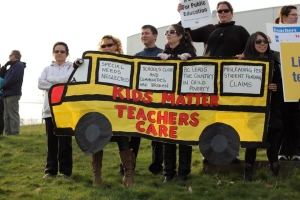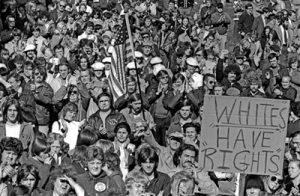As teachers in Nova Scotia mull over their bargaining team’s third attempt at a tentative agreement in just over a year, here are a few observations about the dispute, and about teachers’ and workers’ power in general.
1) Teachers have a new idea of what is possible. Many of the issues teachers have raised over the last year – overcrowded classrooms, insufficient supports for students with special needs, excessive amounts of time spent on clerical tasks – have worsened fairly slowly over the past 10-15 years. Change happened gradually enough that opposition to it was weak, and a general sense of resignation slowly set in.

As the contract dispute has progressed, teachers have started to think big. Class sizes of 35-40 are no longer thought of as inevitable. (New Brunswick has class caps of 29 even in upper grades.) Teachers are speaking out against endless “improvement plans” and “accountability” measures that never seem to result in actual improvements or accountability. The impossibility of meeting the growing diversity of classroom needs under constant cost-cutting budgets has become a serious topic of discussion.
Governments for decades have sold us on the idea that “we can’t afford to do this.” Teachers are now sold on the idea that “we can’t afford not to do this.” Continue reading Teachers unions can win. Let’s get to work





